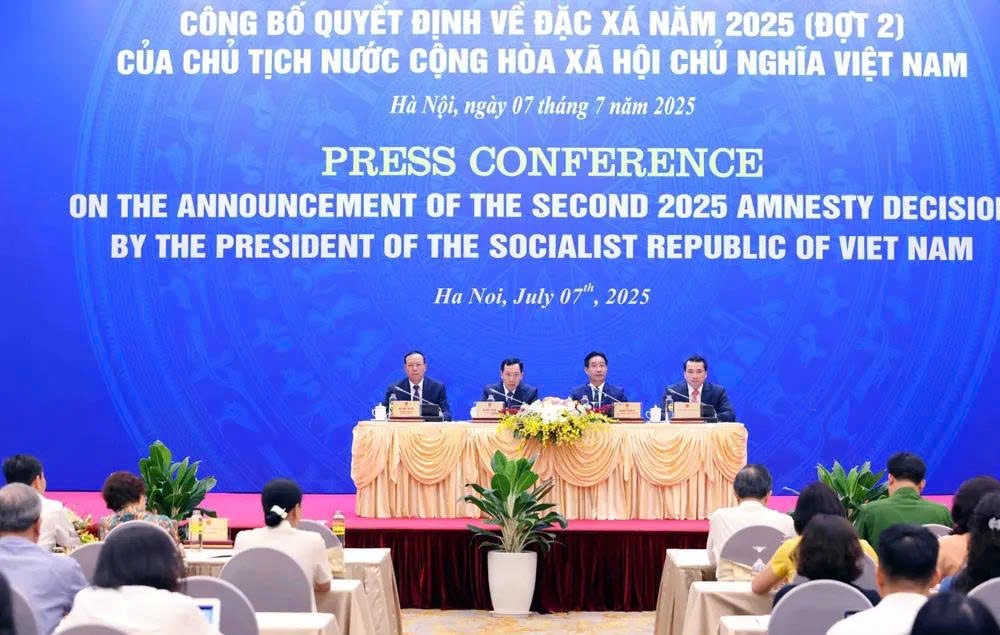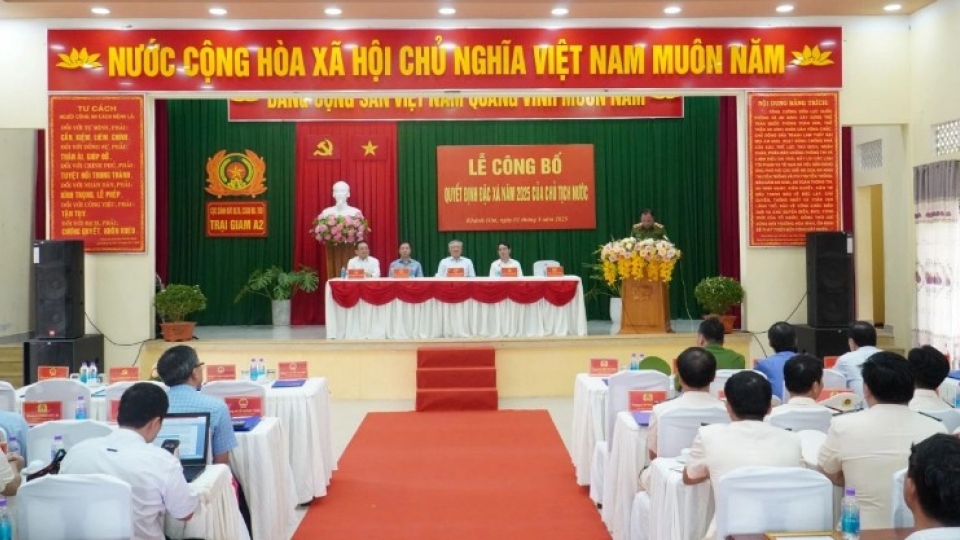Expanded amnesty policy announced ahead of Vietnam’s National Day
VOV.VN - Vietnam is preparing for a second round of amnesty on the 80th National Day (September 2), featuring expanded eligibility and more inclusive conditions compared to the April 30 amnesty.

Speaking at a press conference in Hanoi to announce the President’s amnesty decision, Pham Thanh Ha, deputy chief of the President’s Office, emphasised that 2025 is a significant year with many major national celebrations, which prompted the Government to propose a special amnesty. The President signed the decision on July 3.
Under the decision signed by the President on July 3, the amnesty applies to individuals currently serving fixed-term prison sentences; individuals with life sentences that have been commuted to fixed-term sentences; and individuals temporarily suspended from serving their prison sentences.
The time served for eligibility will be calculated up to August 31, 2025.
Deputy Minister of Public Security, Senior Lieutenant General Le Van Tuyen, said the September 2 amnesty features expanded criteria compared to the April 30 amnesty earlier this year.
“This is a special clemency policy of the Party and State, granted by the President during landmark national events. The 2025 National Day is an especially historic milestone, so the criteria have been broadened,” he stated.
This time several offence categories excluded under the April 30 amnesty decision are now eligible for consideration. They include intentional infliction of injury multiple times on one person, or once on multiple people; causing injury two times or more, or to two or more people; repeated acts of resisting law enforcement; multiple instances of robbery or snatching; and theft committed two or more times.
Tuyen said another key update is the expansion of evaluation periods for behaviour and rehabilitation, which now differ by offence type and are more flexible than those under the previous decision.
The Amnesty Advisory Council has also issued more detailed guidelines to ensure that the release of individuals does not negatively impact national security or public order. This provides prisons and correctional facilities with clearer criteria for assessing and recommending inmates for amnesty.





